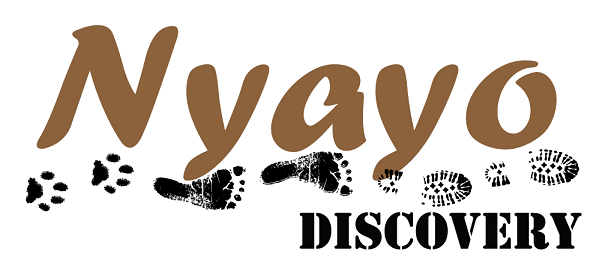The Hadzabe
Inhabiting the area around the Lake Eyasi Basin, the Hadzabe are a unique ethnic group in Tanzania. Apart from the Sandawe and Akie (both groups very close to the Hadzabe believed to be a branch from the original Hadzabe tribe) they are the only true hunter-gatherer groups left in Tanzania and one of only a handful left in this region of the world.
The Hadzabe have managed to live a successful and relatively isolated way of life for many thousands of years. However due to several factors their way of life is becoming harder and their community has gradually dwindled in size to around 1000 people.
Their primary means of subsistence is the gathering of wild fruits and tubers and the collection of honey as well as hunting of wild game such as dik dik (tiny cat sized antelope), larger antelope such as the sacred eland, baboons, wild cats and even elephants, giraffe (although nowadays the Hadzabe are restricted from hunting big game but will still eat them as fresh carrion). In fact few animals are off limits except scavengers such as hyena and wild dogs, or vultures and birds of prey. Like many rural tribes in Tanzania, most Hadza continue to live in traditionally built homes which are made from branches and grass.
Honey is prized for it's sweetness and as an important source of energy and nutrients. The Hadzabe still collect honey in the same way they have done for thousands of years.
As like many rural tribes in Tanzania, most Hadza continue to live in traditionally built homes which in their culture are made from branches and grass.
Although still partially nomadic there are a couple of permanent settlements, the residents of which were made to settle under President Nyerere's Ujamaa government in the 1960s.
Many Hadza homes consist of two structures joined together - one for cooking and socialising, the other for sleeping. Their homes make use of materials easily found in the environment.
The Hadzabe speak a click language (Hadzane) which to non-native speakers sounds similar to the language spoken by Khoisan peoples of Southern and Central Africa. However it was recently confirmed by linguists to be unrelated. This revelation could potentially mean the Hadza are the oldest living community still living the way our pre-historic ancestors used to live.
your program
about the community
We work in two different settled villages and seasonal camps in the surrounding area of Lake Eyasi. Although settled many Hadza here still move around and spend part of the year in seasonal camps within the community owned reserve. This community reserve is important as it gives the Hadza rights to the land and control over how it is used.
what to expect
Beautiful savanna scrub land dotted with rocky kopjes, escarpments, acacia and baobab trees, rivers, rocky outposts and open plains are just a few of the incredible sites you will see during your stay with the Hadzabe. Some of the wildlife you can expect to see are numerous birds, antelope and baboons. Although not easy to spot you will often hear hyena calling at night. Elephants are also found as are rock pythons, zebra and even the rare and endangered wild dog.
You will camp at a community allocated camp site on the edge of the village. Led by a Nyayo Discovery guide you will accompany Hadza and take part in their daily activities, returning to camp for freshly prepared meals and tea breaks. The weather is typically very hot so we often take mid-day breaks when the sun is it’s highest point. We recommend drinking plenty of water, covering up and applying plenty of sun screen!
how tourism helps
Due to the Hadzabe’s relative isolation, minimal access to schools and health care and reduced wildlife for hunting the Hadzabe are especially vulnerable to food scarcity, malnutrition, health issues and under representation in government to name a few issues. Fees from tourism help supplement the Hadza diet during hard times, contribute to school fees and health care costs, help to ensure Hadza voices are heard at the local and national government level and give them stake in the local economy.







